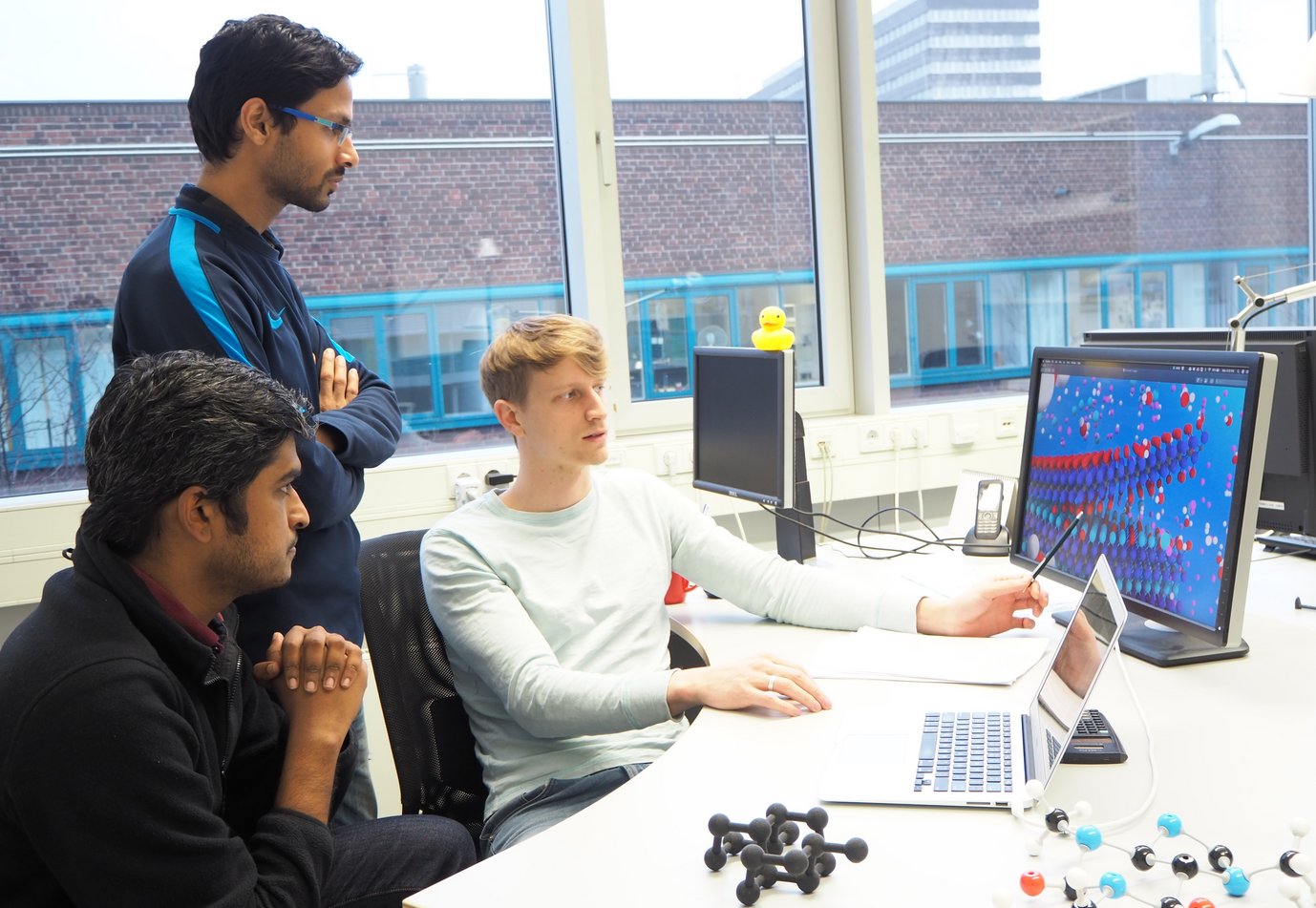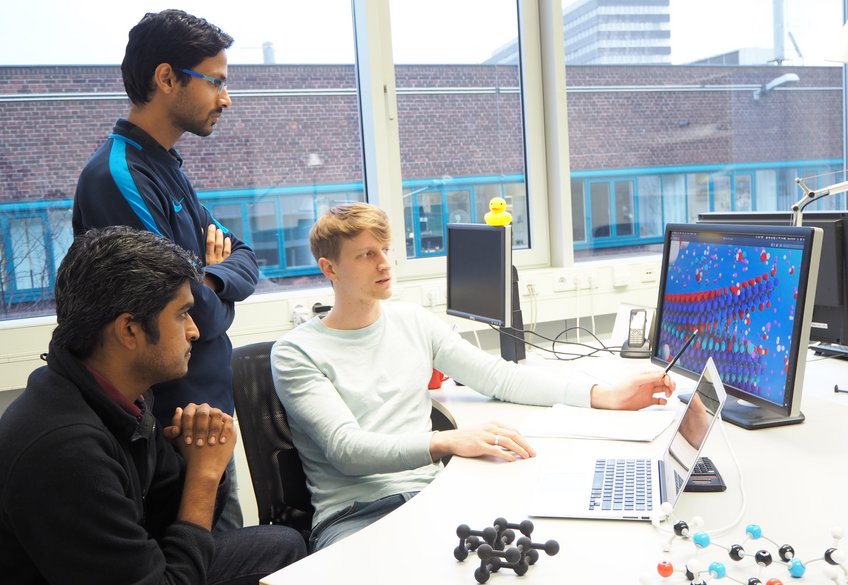Alexander von Humboldt Foundation awards Dr. Michael Ashton
US-American researcher joins the Max-Planck-Institut für Eisenforschung in Düsseldorf
Dr. Michael Ashton, postdoctoral researcher from the United States, who joined the Max-Planck-Institut für Eisenforschung (MPIE) in 2018, was awarded a research scholarship by the Alexander von Humboldt Foundation. The scholarship allows him to continue his work at any German research institution of his choice for up to two years. “I was eager to continue my research in Europe after my Ph.D. to experience a different research landscape and benefit from the intercultural exchange. My first contact with the Max-Planck-Institut für Eisenforschung was through the publications of Prof. Neugebauer and his team. So, I decided to move to Germany and chose the MPIE for my stay”, explains Ashton. Ashton currently works in the department of Computational Materials Design headed by Prof. Neugebauer.

The material scientist obtained his Ph.D. at the University of Florida, USA, where he developed computational methods for the discovery and characterization of two-dimensional materials. He is now working to extend these concepts and methods to surfaces in extreme electric fields. This effort is aided by the MPIE facilities and the collaboration with experts in the area of DFT calculations, atom probe tomography and field evaporation experiments. Ashton works closely with MPIE’s experimental groups to study how surfaces behave, and ultimately evaporate, under extreme electric fields. This is important, for example, in the context of atom probe tomography measurements, where the trajectory of an atom evaporating from the surface under the influence of the applied strong voltage depends on the atomistic details of the desorption process. The obtained information will aid experimentalist to achieve a better three-dimensional reconstruction of the sample on the computer, which is possible by analysing the time of flight and the position data collected at the detector. Ashton’s studies aim at understanding the atomistic details of the evaporation process and then using this knowledge to provide better control over interesting electric-field triggered processes. An ability to control extreme electric fields has important implications for a broad range of subjects, including catalytic reactions or phase changes.
“My wife and I are now learning German as we would like to continue our stay even after my scholarship ends. The transition from the States to Germany was relatively smooth. What is really different is the amount of paper work, which has to be done here. Back in the US, we are used to filling out nearly everything online. But we have really enjoyed the German health insurance system and the chance to travel around Europe easily”, describes Ashton.
Scientists from over 35 nations are working at the MPIE to develop materials applicable in the fields of mobility, energy, infrastructure, medicine and safety. Some of these scientists are funded by the Alexander von Humboldt Foundation that supports excellent researchers from outside Germany with scholarships to continue their work in a German research institution of their choice. The scholarship counts as an award for the scientist as well as for the host institution.
Author: Yasmin Ahmed Salem
